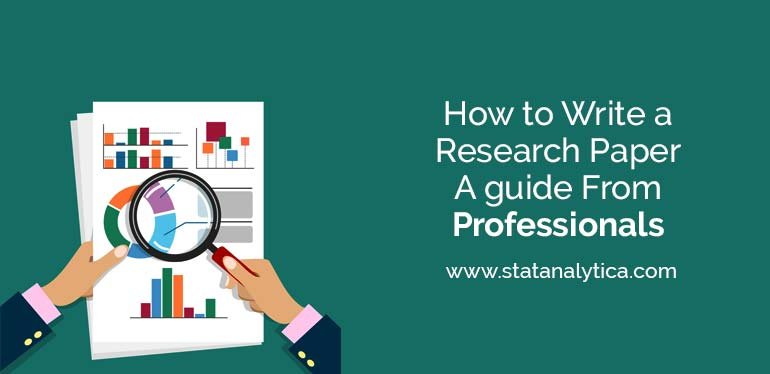Getting good grades is often associated with hours of rigorous studying, but what if there were alternative approaches that could yield the same results? In this blog, we’ll explore unconventional strategies that can help you achieve academic success without adhering strictly to traditional study methods. Let’s check the details on how to get good grades without studying.Also Check: How To Solve Linear Equations In Two Variables?
Is Studying Really Important to Get Good Grades?
Table of Contents
Studying is generally considered an essential component for achieving good grades, as it involves the intentional and focused effort to understand and retain information.
However, the importance of studying doesn’t necessarily mean it has to conform to traditional methods or be the sole approach to academic success. The effectiveness of studying can depend on various factors, and alternative strategies may also contribute to good grades. Let’s explore this in more detail:
- Understanding Concepts: Studying, in its essence, is about understanding concepts and gaining knowledge. Whether through traditional methods like reading textbooks or through more unconventional means like hands-on experiences, the key is to comprehend the material.
- Learning Styles: People have different learning styles. While some may excel through visual learning, others may prefer auditory or kinesthetic approaches. Recognizing and adapting to your unique learning style can enhance the effectiveness of your study efforts.
- Active Participation: Actively participating in class, asking questions, and engaging with the material during lectures are forms of studying that may not involve sitting down with books for extended periods. This approach encourages understanding and retention.
- Utilizing Resources: The digital age has brought about a wealth of educational resources beyond traditional textbooks. Educational apps, online tutorials, and interactive websites can be valuable tools for learning without necessarily adhering to conventional study methods.
- Critical Thinking: Developing critical thinking skills is crucial for academic success. This involves analyzing information, connecting concepts, and applying knowledge creatively. While this can be fostered through studying, it’s not limited to conventional study sessions.
- Strategic Exam Preparation: Rather than just reviewing notes, strategic exam preparation involves understanding the format of exams, practicing with past papers, and developing effective test-taking strategies. This goes beyond the typical notion of studying and focuses on preparation for assessments.
- Support System: Building a support system, such as forming study groups or seeking guidance from teachers and peers, is another way to enhance your understanding of the material. Collaborative learning can be a powerful supplement to individual study sessions.
- Holistic Approach: A holistic approach to academic success recognizes that factors like maintaining a healthy lifestyle, adequate sleep, regular exercise, and balanced nutrition contribute to cognitive function and overall well-being. These factors complement traditional study efforts.
While studying is an integral part of academic achievement, the key lies in finding a personalized and effective approach that aligns with your learning style and preferences.
Incorporating various strategies, both traditional and unconventional, can contribute to a more well-rounded and successful academic experience.
Ultimately, the goal is to understand and apply knowledge, and the methods employed to achieve this can vary from person to person.

How to Get Good Grades Without Studying?
Getting good grades without traditional studying may sound unconventional, but it’s possible by adopting alternative approaches that emphasize understanding, engagement, and strategic planning. Here are some tips:
Active Participation in Class
- Engage with the material during lectures.
- Take thorough notes and ask questions.
- Participate in class discussions and activities.
Utilize Resources Beyond Textbooks
- Explore educational apps, online tutorials, and interactive websites.
- Leverage multimedia resources for a more dynamic learning experience.
Build Strong Relationships with Teachers
- Seek guidance and clarification directly from teachers.
- Establish open communication to better understand the course material.
Form Study Groups
- Collaborate with classmates to share knowledge and insights.
- Discuss challenging topics and learn from each other’s perspectives.
Apply Practical Experience
- Connect theoretical knowledge to real-world applications.
- Participate in internships, projects, or hands-on experiences related to your field of study.
Develop Critical Thinking Skills
- Analyze information critically.
- Connect concepts across different subjects.
- Apply knowledge creatively to solve problems.
Strategic Exam Preparation
- Understand the format of exams and the types of questions asked.
- Practice with past papers and focus on improving test-taking strategies.
Prioritize Understanding Over Memorization
- Focus on understanding concepts rather than rote memorization.
- Relate new information to existing knowledge for better retention.
Effective Time Management
- Prioritize tasks based on importance and deadlines.
- Set realistic goals and break down larger tasks into manageable steps.
- Avoid procrastination and use time efficiently.
Stay Organized
- Maintain a well-organized schedule and keep track of assignments and deadlines.
- Structure your study sessions to maximize productivity.
Develop Strong Communication Skills
- Improve written and oral communication skills.
- Clearly express ideas and thoughts in assignments and exams.
Stay Informed About the Course
- Regularly check course updates and announcements.
- Be aware of any changes to assignments, exams, or study materials.
Seek Feedback and Learn from Mistakes
- Request feedback on assignments and exams.
- Use constructive criticism to identify areas for improvement.
Maintain a Healthy Lifestyle
- Prioritize sufficient sleep, regular exercise, and balanced nutrition.
- A healthy lifestyle positively impacts cognitive function and overall well-being.
Remember that while these strategies can help you achieve good grades without traditional studying, they require active engagement and dedication.
Finding a balance between alternative methods and conventional study techniques can lead to a more holistic and personalized approach to academic success.
13+ Hacks for Getting Good Grades Without Studying
While it’s important to emphasize that there are no shortcuts to genuine learning and understanding, there are some strategies and habits that students can incorporate to enhance their academic performance without resorting to traditional, time-consuming studying. These “hacks” are meant to complement learning and promote efficiency:
- Effective Note-Taking Techniques:
- Develop shorthand or use symbols to quickly capture key information.
- Organize notes with color-coding or mind maps for easier recall.
- Utilize Memory Techniques:
- Employ mnemonic devices or acronyms to remember lists or sequences.
- Create associations between new information and familiar concepts.
- Prioritize High-Impact Topics:
- Identify and focus on the most crucial topics or concepts for exams.
- Allocate more time to areas with higher weight in assessments.
- Optimize Learning Environments:
- Find a study environment that minimizes distractions and enhances concentration.
- Experiment with background music or white noise if it helps you focus.
- Active Participation in Class:
- Develop a habit of participating in class discussions and activities.
- Engage with the material during lectures to enhance understanding.
- Utilize Educational Apps:
- Incorporate educational apps that offer interactive and engaging content.
- Gamified learning platforms can make studying more enjoyable.
- Mindfulness and Relaxation Techniques:
- Practice mindfulness or meditation to reduce stress and improve focus.
- Short relaxation exercises before exams can help alleviate anxiety.
- Healthy Habits for Better Cognitive Function:
- Ensure regular sleep to optimize memory consolidation and cognitive function.
- Stay hydrated and maintain a balanced diet for sustained energy levels.
- Utilize Online Resources Smartly:
- Explore online resources, such as video lectures or educational forums, for additional insights.
- Use online platforms to connect with peers for collaborative learning.
- Effective Time Management:
- Implement the Pomodoro Technique, breaking study sessions into focused intervals.
- Prioritize tasks based on urgency and importance.
- Visual Aids and Graphics:
- Create visual aids like charts, diagrams, and infographics to represent information.
- Use graphic organizers to clarify complex concepts.
- Stay Informed About Assessments:
- Regularly check course outlines and syllabi for upcoming assessments.
- Review assignment guidelines thoroughly to meet specific requirements.
- Positive Mindset and Visualization:
- Visualize success and imagine yourself confidently tackling challenges.
- Cultivate a positive mindset towards learning and assessments.
- Connect Concepts to Real-World Examples:
- Relate academic concepts to real-world scenarios for better understanding.
- Apply theoretical knowledge in practical situations when possible.
It’s important to note that while these strategies can be helpful, they do not replace the need for genuine engagement with the material. Students should strive to develop a deep understanding of the subjects they are studying.
Additionally, individual learning styles and preferences vary, so it’s crucial to experiment with different approaches to find what works best for each student.
Conclusion
In conclusion (on how to get good grades without studying), achieving good grades doesn’t always require traditional studying. By understanding your learning process, managing your time effectively, actively participating in class, utilizing available resources, adopting strategic exam preparation methods, building a support system, developing critical thinking skills, and maintaining a healthy lifestyle, you can excel academically in a more holistic way.
Embrace these unconventional strategies, and you might find that the journey to good grades can be both rewarding and enjoyable.


